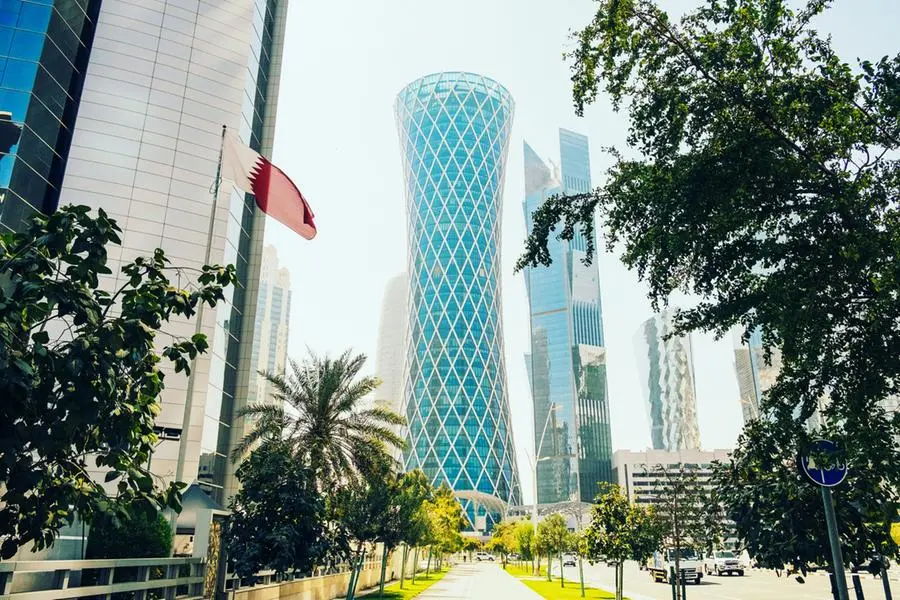PHOTO
Doha, Qatar: Qatar is bolstering its global leadership in the energy sector and developing diversification clusters to drive non-hydrocarbon economic growth. Creating an investor-friendly environment will foster entrepreneurship and foreign investment, and also enhance the competitiveness of local companies.
Speaking to The Peninsula, Peter Kaznacheev, Principal at Arthur D Little, highlighted how Qatar’s resilient non-energy sector is expected to drive growth in coming years.
Earlier this year, Qatar’s Third National Development Strategy (NDS3) unveiled that it aims for a four percent growth in non-hydrocarbon gross domestic product (GDP). Qatar can leverage its strengths in several key sectors to hit this target, he noted.
Kaznacheev said, “I would highlight three products: aluminium, steel, and ammonia (including low-carbon blue ammonia soon). Qatar has a double advantage here; first, there’s the cost-efficient gas, which powers these industries and serves as a feedstock for ammonia production. While global electricity prices have been soaring, in the GCC prices remain stable and competitive.
"Secondly, there is a strong global demand for these commodities. Aluminium, for instance is projected to see a 3.1 percent annual growth over the next decade, driven by sectors like transportation and consumer durables.”
The Gulf Cooperation Council (GCC), thanks to its energy edge, has ramped up its share to about 10 percent of the world’s aluminum production, exporting 60 percent to over 65 countries. Moreover, there is a decarbonisation opportunity here. Surprisingly, today’s worldwide aluminium production is powered by coal more than it used to be two decades ago (that’s because of the increase of China’s share). By selling more aluminium powered by natural gas, Qatar and other GCC countries are actually decreasing the carbon footprint on a global scale. This effect will be even stronger if Qatar produces more low-carbon aluminium products, he added.
Commenting about the investment opportunities Qatar offers for investors in light of the recent decision of the Ministry of Commerce and Industry to reduce fees by up to 90 percent for certain services, Kaznacheev said the challenge for investors in Qatar is relatively high labour costs compared to emerging markets, particularly for white-collar jobs. To address this, the Qatari government is implementing investor-friendly initiatives such as low tax rates.
MoCI’s decision to reduce service fees by up to 90 percent is the latest such incentive for investors. Early movers will find opportunities in various sectors, he added.
Kaznacheev also highlighted the strategic initiatives to diversify the economy and attract foreign direct investment. “Under its National Vision 2030, Qatar has launched several strategic initiatives to diversify its economy and attract foreign direct investment.
"These begin with the Qatar Financial Centre (QFC), followed by the Qatar Science and Technology Park (QSTP), and subsequently the Ras Bufontas and Umm Alhoul free zones, which offer a zero-tax environment and other incentives,” he noted.
He further said, NDS3 focuses on nine sectoral clusters, including digital services, tourism, logistics, and education, to drive diversification. These initiatives, combined with Qatar’s strong economic fundamentals, enhance its diversification potential.
Under NDS3, Qatar aims to achieve an increased share of non-hydrocarbon government revenues.
Achieving this target will include strengthening tax administration capacity and efficiency, enhancing tax compliance, and implementing a proactive risk system using advanced technologies.
The country also aims to maintain a sustainable fiscal budget, reduce procyclicality, and enhance public expenditure efficiency and effectiveness.
To this end, Qatar has already established a medium-term fiscal framework and is in the process of implementing programme-based budgeting.
It will also better align planning and budgeting processes.
© Dar Al Sharq Press, Printing and Distribution. All Rights Reserved. Provided by SyndiGate Media Inc. (Syndigate.info).





















